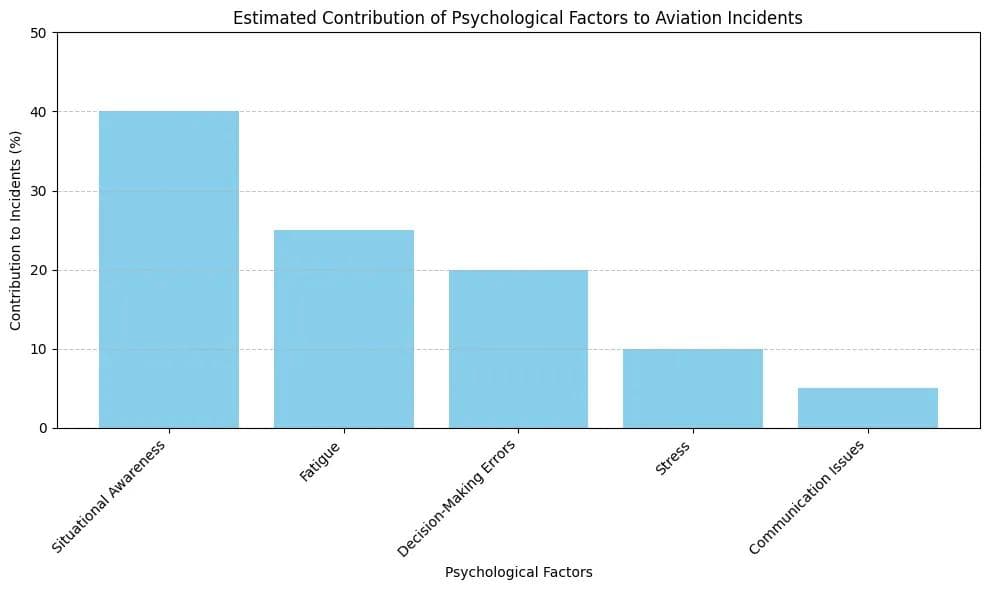
Unveiling the Mind in Flight Psychological Influences on Aviation Safety
Explore how human psychology impacts aviation safety—covering stress, decision-making, fatigue, and teamwork to enhance pilot performance and reduce risk.
"Human psychology in aviation is a critical factor influencing safety, performance, and decision-making in high-stakes environments. The unique conditions of aviation—high altitudes, confined spaces, time pressure, and complex systems—amplify psychological stressors and cognitive demands on pilots, crew, and air traffic controllers."
Stress and Workload Management
Pilots and crew face intense workloads, especially during takeoff, landing, or emergencies. Acute stress can impair cognitive functions like attention and memory, leading to errors. Effective training in Crew Resource Management helps mitigate this by fostering teamwork, communication, and stress coping strategies. For example, pilots are trained to prioritize tasks under pressure to avoid cognitive overload.
Situational Awareness
Maintaining SA understanding the aircraft’s status, environment, and potential threats—is vital. Psychological factors like fatigue, distraction, or overconfidence can degrade SA, increasing the risk of accidents. Studies show that lapses in SA contribute to a significant percentage of aviation incidents, emphasizing the need for vigilance and structured decision-making processes.
Decision-Making Under Uncertainty
Pilots often make rapid decisions with incomplete information, such as during adverse weather or mechanical issues. Cognitive biases, like confirmation bias or over-reliance on automation, can skew judgment. Training simulators and scenario-based exercises help pilots develop heuristic-based decision-making to balance speed and accuracy.
Fatigue and Circadian Disruption
Long flights, irregular schedules, and time zone changes disrupt circadian rhythms, leading to fatigue, reduced alertness, and impaired performance.
"Fatigue is implicated in 20-30% of aviation incidents, per research. Countermeasures include regulated duty hours and fatigue risk management systems."
Human-Machine Interaction
Modern cockpits rely heavily on automation, which can lead to complacency or skill degradation (automation bias). Conversely, distrust in automated systems can cause pilots to override correct inputs. Psychological training emphasizes balanced trust in technology, ensuring pilots remain engaged and proficient.
Team Dynamics and Communication
Aviation relies on effective collaboration among crew members and ground control.
"Miscommunication, often rooted in hierarchical or cultural differences, has historically led to accidents ( the 1977 Tenerife disaster). CRM training addresses this by promoting assertiveness, clarity, and mutual respect."

Human psychology in aviation shapes performance through stress, decision-making, and teamwork. Ongoing training, fatigue management, and technology integration are critical to enhancing safety and efficiency.
Understanding and addressing these psychological factors ensures aviation professionals can operate effectively in one of the most demanding environments.